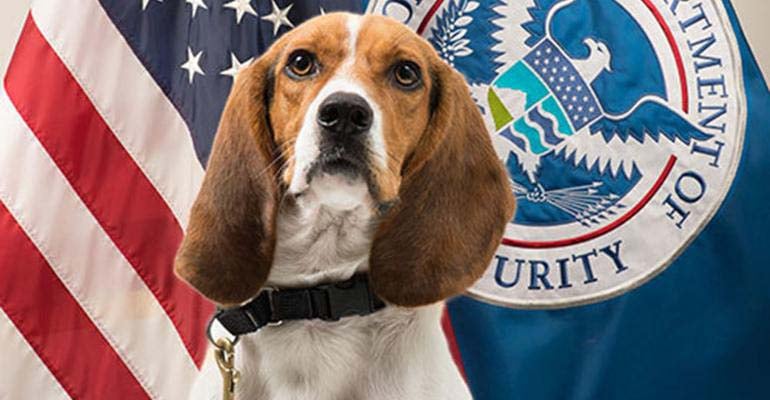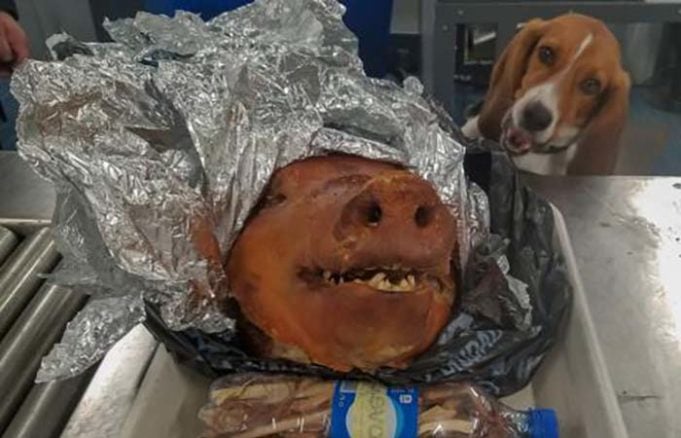It was just a regular day at work at the airport for the 6-year-old Beagle when the USDA declared the dog a hero.
Every day, the U.S. Customs and Border Patrol (CBP) at one of the world's busiest airports blocks banned items from getting into the country. But on this particular flight from Ecuador, a Beagle named Hardy, that works at Atlanta's Hartsfield-Jackson International Airport, was able to sniff out sometime very unusual.
Trained as a detector dog for the Beagle Brigade for the U.S. Department of Agriculture (USDA), Hardy was tasked to search for agricultural products that are not supposed to enter the United States. He was able to smell one luggage that had a two-pound roasted pig's head. It was not to enter U.S. soil.
Prohibiting Pork Products
Pork products are apparently on the USDA and the CBP's list of banned items. Some food products and produce like fruits and vegetables are, in fact, required to be declared when entering the United States to ensure that visitors to the country won't bring in diseases from these products.
The USDA said in its press release that Hardy was able to alert officials about the roasted pig that could be a carrier of the African Swine Fever. The disease has a deadly effect on all kinds of pigs and could have grave repercussions in the pork and farming industry, should there be a contamination.
RELATED: A Timeline of How and Why Beagles Were Used in Lab Experiments
Best Defense for Protecting the U.S.

The agency commended Hardy for the working dog's quick action and vigilance. The Beagle safeguarded the U.S. against animal diseases.
According to the CBP, Beagles like Hardy are the country's best defense against animal diseases from foreign lands. Hardy's action also showed the tremendous work that K-9 dogs contribute to the country.
But before the members of the border patrol took the roasted pig to be destroyed, Hardy was able to pose next to it like a trophy. The 6-year-old K-9 smiled for the cameras and showed that he's mighty proud of what he's done.
Though Harvey might have loved to eat the intercepted cooked food, it could still be harmful to his health. Hopefully, he received a different tasty reward for his good work.
The Beagles Brigade
Hardy joined the Beagles Brigade in 2015 and received his training at the Newnan National Detectors Dog Training Center (NDDTC). These dogs average at least 75,000 interceptions, blocks, and seizures of banned agricultural every year.
According to How Stuff Works, other countries have been inspired to form its own Beagle Brigade. In fact, NDDTC has been training, certifying and validating the skills of the dogs to work in countries like Japan, Canada, Chile, and Mexico.
Beatles have been originally bred for hunting rabbits. They have a keen sense of smell that can work even better than scientific instruments. So, they are particularly fit for their job as border patrol checkers. Aside from their noses, Beagles also have a friendly demeanor and temperament. They can work with humans quite well and aren’t also too big nor too small for their size.
With proper training, these animals are able to distinguish food items that are banned and not banned. According to CNN, these Beagles have a 90 percent rate of success and can learn to detect 50 different types of smells.
The Beagles that arrive at NDDTC for training come from animal shelters, private individuals or breeders. K-9 members are expected to be of service until they are 10 years old. Once they are retired, their handlers adopt them or put them in a proper home with their new forever family.
READ NEXT: New Study Explains Detection Dog Errors in Sniffing Poop













